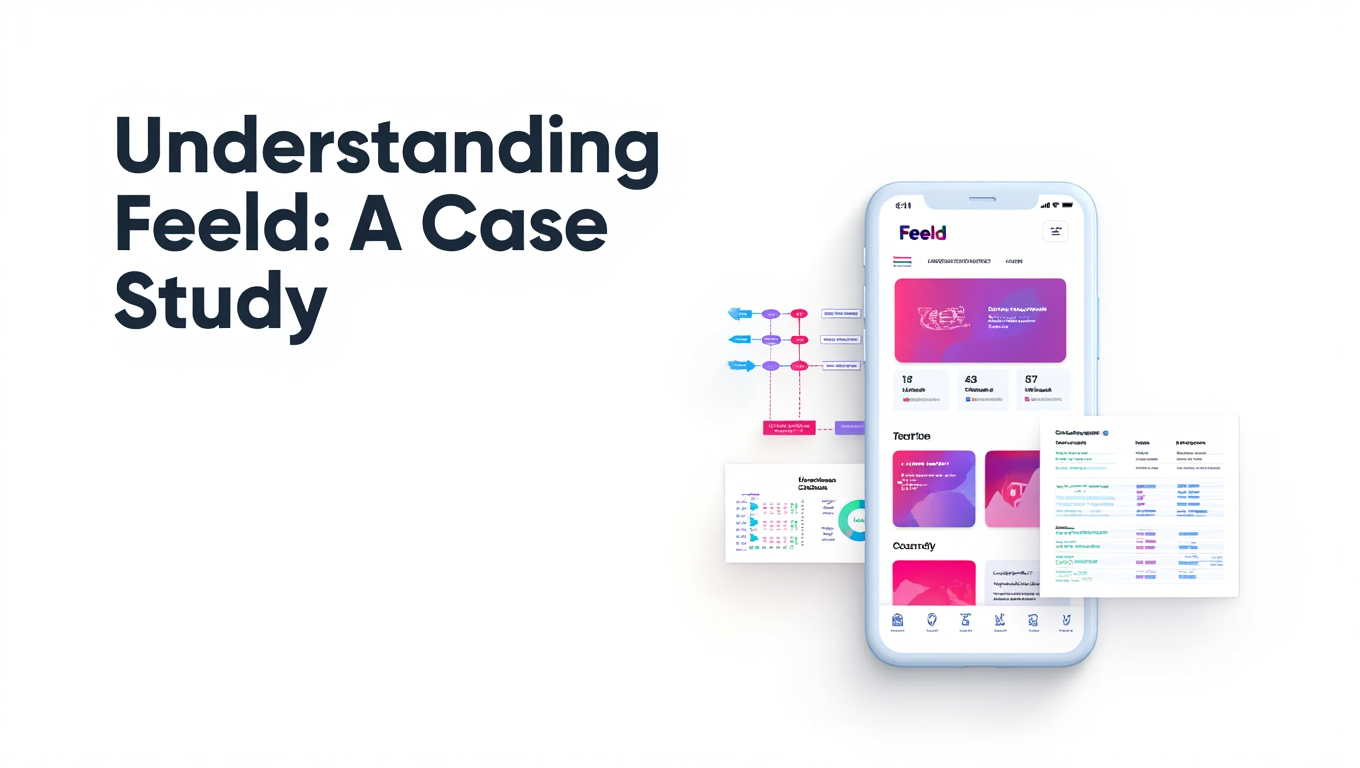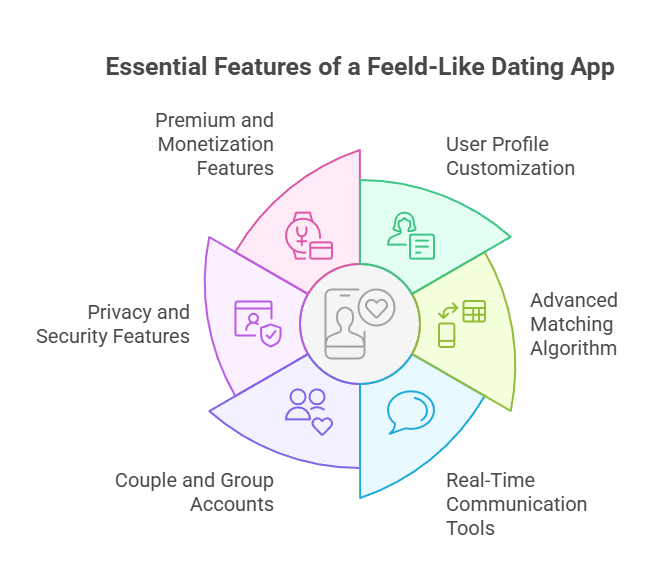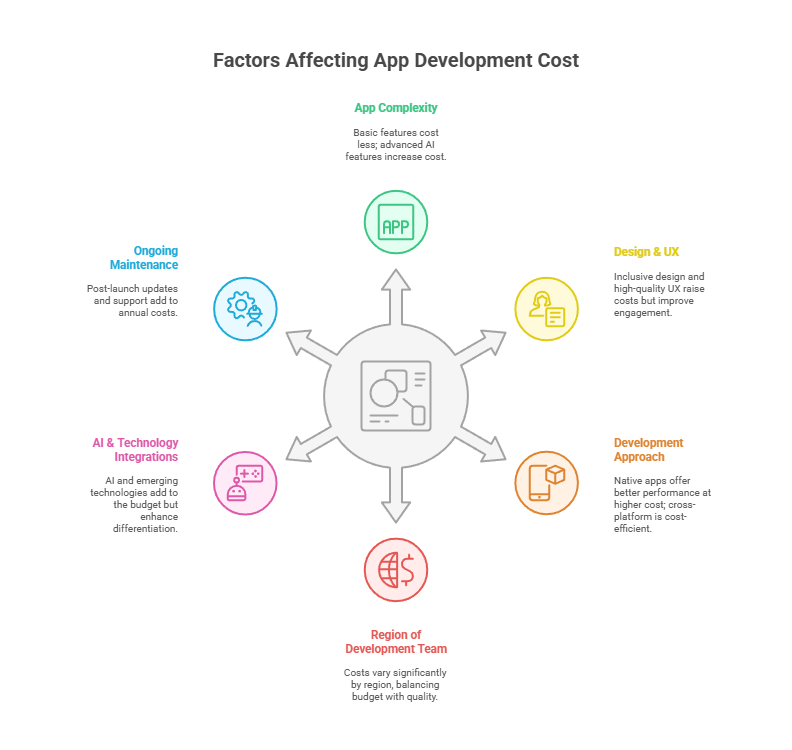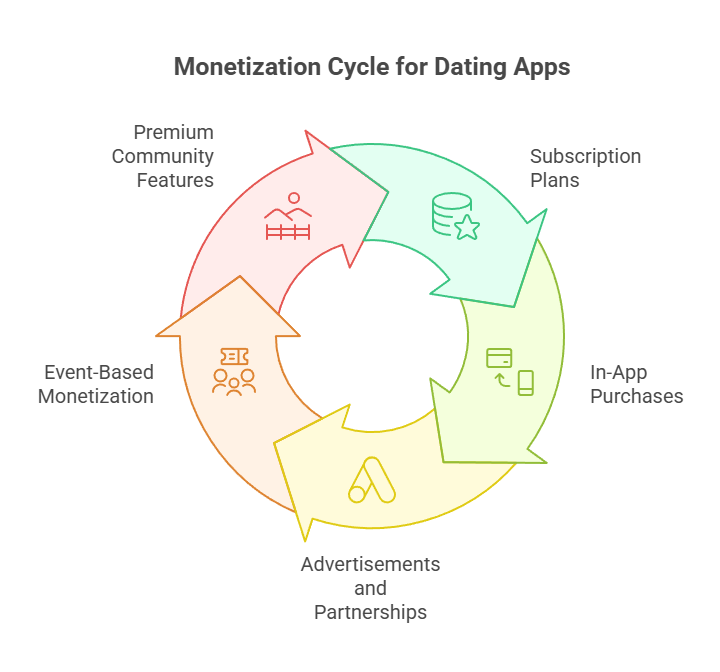
The online dating industry in 2025 is more dynamic than ever. With millions of users worldwide, dating platforms have evolved from simple matchmaking tools into highly personalized ecosystems powered by advanced technologies like AI chatbot solutions. Users now expect not only convenience and safety but also inclusivity and personalization when choosing a dating app.
Table of Content
Among the many platforms in this space, Feeld has emerged as a pioneer. Unlike mainstream dating apps that focus primarily on traditional connections, Feeld offers a space for individuals and couples exploring alternative relationships. Its inclusivity, open-minded community, and innovative features have positioned it as a unique platform that resonates with modern users seeking more than conventional dating experiences.
The purpose of this blog is to provide a roadmap for startups and entrepreneurs who want to develop a dating app like Feeld in 2025. From understanding the app’s unique value proposition to exploring the latest tools and strategies, we’ll cover what it takes to create a dating app that stands out in today’s competitive landscape. Whether you partner with a leverage advanced services, the insights shared here will help you plan and execute your app development journey effectively.

To build an app that rivals Feeld, it’s essential to first understand what makes it distinctive.
Feeld positions itself as a progressive, inclusive, and open-minded dating platform. It caters to individuals and couples seeking connections outside the boundaries of traditional dating. By prioritizing inclusivity and freedom of expression, Feeld allows its users to explore relationships on their own terms. This value-driven positioning makes it more than just a dating app — it’s a community.
Unlike conventional platforms that cater to heterosexual singles, Feeld appeals to diverse groups, including the LGBTQ+ community, polyamorous individuals, and couples looking to connect with like-minded people. Its inclusive design and respectful environment address a gap in the market where many users felt underserved. By embracing this niche, Feeld has successfully carved out a loyal and growing user base.
Feeld introduces features rarely seen in traditional dating apps, such as:
These features demonstrate how thoughtful design and innovative technology can transform a simple idea into a market-leading product. For startups, the takeaway is clear: to build a dating app that resonates, it’s not enough to replicate existing solutions—you must integrate features that reflect inclusivity, diversity, and evolving user expectations.
The online dating landscape in 2025 reflects both exponential growth and increasing specialization. No longer dominated solely by broad-spectrum platforms, the industry now thrives on niche dating apps tailored to unique communities, lifestyles, and preferences. For entrepreneurs planning to develop a dating app, understanding market trends and user behavior is crucial to creating a solution that captures attention and builds long-term engagement.
Recent statistics indicate that the global dating app industry is projected to surpass $10 billion annually by 2025, fueled by technological innovation, shifting cultural norms, and a greater acceptance of digital-first relationships. More than half of adults under 40 now report having used at least one dating app, with many turning to specialized platforms for more personalized experiences.
This shift opens the door for startups to create a dating app that doesn’t compete directly with giants like Tinder or Bumble but instead serves communities that mainstream apps often overlook.
Users today are seeking authenticity and inclusivity. Platforms like Feeld succeed because they serve a specific audience with unique needs, such as polyamorous couples or individuals exploring alternative lifestyles. For entrepreneurs, this trend represents a chance to build a dating app with targeted features that foster loyalty and community.
Additionally, niche apps tend to achieve higher user retention rates because they address deeply personal values and identities. By focusing on community-first experiences, you create more meaningful engagement than mass-market alternatives.
The success of future dating platforms will also hinge on their ability to adopt cutting-edge technologies. Leveraging allows startups to build advanced recommendation systems, detect harmful behavior, and create more personalized matchmaking experiences. Similarly, integrating enhance onboarding and provide real-time support, while can automate moderation and community management.
Startups partnering with an experienced advantage of both technical expertise and scalability, enabling them to enter the market faster and adapt as user demands evolve.
In short, the dating app industry in 2025 is full of opportunities for innovators who are ready to combine inclusivity, personalization, and cutting-edge technology. By aligning with these trends, startups can successfully develop a dating app that stands out in an increasingly competitive landscape.

When you set out to develop a dating app, one of the most critical factors that determines its success is the feature set. A well-designed platform should not only allow users to connect but also create an environment that feels safe, inclusive, and engaging. Feeld’s popularity lies in its ability to combine standard dating app features with unique, forward-thinking functionalities. Below are the must-have features to consider when you create a dating app inspired by Feeld.
In 2025, personalization is the cornerstone of user experience. Unlike traditional dating platforms with limited profile options, Feeld gives users the freedom to express themselves fully. This includes:
By offering this flexibility, you can build a dating app that resonates with diverse communities and makes users feel represented.
Gone are the days of simple swipe mechanics. Modern users expect intelligent matchmaking powered By integrating machine learning models, your app can analyze user preferences, behavior, and interactions to suggest the most relevant matches. This not only improves user satisfaction but also increases retention.
At the heart of any dating app lies the ability to interact. While text chat is standard, Feeld extends its functionality with group chats, discreet messaging, and even video calling. Integrating can further enhance communication by guiding new users through onboarding, facilitating icebreakers, or even moderating conversations for safety.
One of Feeld’s most distinctive features is the ability for couples to create shared profiles and explore connections together. Adding support for group or couple accounts allows you to create a dating app that supports alternative relationship models, giving your platform a competitive edge.
Privacy remains a top priority for users. Features like incognito mode, location masking, and photo blurring are no longer optional — they’re expected. Leveraging can also help detect fake profiles, prevent scams, and flag inappropriate behavior, ensuring a safe user experience.
To ensure long-term scalability, your app should offer monetization opportunities, such as:
Building a successful platform like Feeld requires more than just replicating features — it’s about combining innovative technology, inclusive design, and strategic execution. If you’re planning to develop a dating app in 2025, here’s a step-by-step roadmap that will help you transform your vision into a scalable product.
Before you create a dating app, you must define its core concept:
This foundation will guide your feature selection, design, and marketing strategy.
A strong technical foundation is essential to build a dating app that is scalable and secure. The recommended tech stack includes:
Partnering with an experienced mobile app development company ensures that your app architecture is future-ready and optimized for performance.
Your team will play a pivotal role in shaping the product. A standard team should include:
The process to create a dating app should follow an agile methodology:
Launching a dating app successfully requires careful planning:
To develop a dating app like Feeld in 2025, you need a clear vision, the right technology, and an agile execution strategy. By combining inclusivity with cutting-edge and you can build a dating app that not only meets user expectations but also stands out in a saturated market.
The cost to develop a dating app like Feeld in 2025 can vary significantly depending on complexity, features, and the expertise of your chosen team. While there’s no one-size-fits-all estimate, understanding the major cost factors will help you budget more effectively.

While it may be tempting to cut costs, building a successful dating app requires more than just the basics. Users expect an intuitive design, strong privacy, and advanced features that feel personal. Investing in inclusive design early on can ensure better user satisfaction and higher retention. Partnering with a reliable partner reduces the risk of costly mistakes and ensures scalability.
The cost to create a dating app like Feeld in 2025 depends on your vision, desired features, and technology choices. On average, expect to invest between $100,000 and $250,000 for a full-featured platform, with ongoing maintenance to keep your app competitive.
While the opportunity to develop a dating app like Feeld is enormous, it also comes with a unique set of challenges. Startups and entrepreneurs must prepare to navigate these hurdles to ensure long-term success.
1. Balancing Inclusivity with User Experience
Feeld’s biggest strength is its inclusivity, but building an app that caters to diverse sexual orientations, gender identities, and relationship styles can be complex. Too many customization options may overwhelm users, while too few may alienate them. Striking the right balance in UI/UX design is key when you create a dating app for modern users.
Dating apps process highly personal information, making them prime targets for cyber threats. Users expect strict privacy protections, including encrypted chats, secure logins, and anonymous browsing. Leveraging for fraud detection, content moderation, and suspicious activity monitoring can significantly boost trust and security.
Toxic behavior, harassment, and fake profiles are common challenges across dating platforms. A successful Feeld-like app must integrate safety features such as:
These safeguards not only protect users but also enhance your brand reputation.
Mainstream platforms like Tinder, Bumble, and Hinge dominate the market. To stand out, a new app must offer unique features and a compelling value proposition. This is where niche positioning, inclusivity.
5. Monetization Without Alienating Users
Finding the right balance between free and premium features can be challenging. Overly aggressive monetization may push users away, while offering too much for free can make the business unsustainable. Working with a design a tiered pricing model ensures both profitability and a positive user experience.
As your app grows, technical scalability becomes a major challenge. Without the right infrastructure, performance issues may arise as the user base expands. Cloud solutions, microservices architecture, and ongoing support from
The journey to build a dating app like Feeld isn’t without obstacles. Inclusivity, security, safety, competition, and monetization all present challenges that require careful planning and execution. By partnering with the right services, entrepreneurs can overcome these hurdles and create a platform that is safe, inclusive, and scalable.

Building a Feeld-like platform isn’t just about inclusivity and great features — it also needs a sustainable revenue model. When you develop a dating app, monetization should be carefully designed to balance profitability with user satisfaction. The goal is to create a business model that generates steady income while keeping users engaged and happy.
The most common way to monetize is through tiered subscription models. Users can access the app for free with basic features, while premium plans unlock advanced benefits such as:
This approach allows you to build a dating app that generates predictable recurring revenue.
Offering one-time purchase options can be highly profitable. Examples include:
Partnering with ensures these in-app purchases are seamless, secure, and scalable.
If executed thoughtfully, ads can provide an additional revenue stream without overwhelming users. Strategic partnerships with lifestyle, travel, or wellness brands can also offer integrated promotions that align with your audience’s interests. Using services, you can personalize ad placements so they feel relevant rather than intrusive.
Many modern platforms are introducing paid virtual or in-person events such as mixers, speed dating sessions, or workshops. By adding these as premium experiences, you can create a dating app that builds community while also generating revenue.
5. Premium Community Features
A growing trend in 2025 is gated communities within dating apps. By paying for access, users can join smaller, curated groups based on shared lifestyles or preferences. This model not only creates exclusivity but also fosters a stronger sense of belonging, helping differentiate your platform from mainstream competitors.
Monetization is not just about revenue — it’s about providing added value to users. To develop a dating app like Feeld successfully, entrepreneurs should combine subscription models, in-app purchases, and unique premium experiences.
The online dating industry has always evolved with technology and cultural shifts, but in 2025, we’re witnessing a transformative era. Startups looking to develop a dating app must not only focus on present-day features but also anticipate the future needs of users. From artificial intelligence to immersive digital experiences, the next generation of dating platforms will redefine how people connect.
Artificial intelligence is already central to modern dating, but its role will expand further. With advanced dating apps can deliver hyper-personalized recommendations by analyzing behavioral data, preferences, and even conversational tone. AI will enable matchmaking that feels natural and intuitive, improving both match quality and retention rates.
Future dating platforms will rely heavily on user experience. These chatbots can:
Incorporating startups can create a smoother, more interactive environment that feels both personal and safe.
Imagine attending a virtual date in a simulated café or joining a VR social mixer with people from around the world. As AR and VR technologies mature, dating apps will adopt immersive experiences that go beyond traditional chat and video calls. Startups that build a dating app with these capabilities will have a competitive edge in attracting tech-savvy audiences.
User trust will remain a priority. Blockchain-based verification systems and decentralized data storage can give users more control over their personal information. For entrepreneurs planning to create a dating app, integrating blockchain ensures transparency and security while addressing growing privacy concerns.
What Feeld started as a niche offering will soon become a baseline expectation. By 2025 and beyond, inclusivity in gender identity, orientation, and relationship styles will no longer be optional but essential. Startups should design with inclusivity at the core, not as an afterthought.
Future dating apps may integrate with lifestyle services such as fitness trackers, mental health apps, or event platforms to provide holistic experiences. For example, a dating app could suggest nearby wellness retreats or match users based on shared health and lifestyle habits. Partnering with a mobile app development company that can integrate APIs seamlessly will be critical for this kind of innovation.
The future of dating app development lies in personalization, inclusivity, and immersive experiences. Entrepreneurs who embrace AI development services and emerging technologies like VR and blockchain will lead the next wave of innovation. To succeed, it’s essential to build a dating app that not only meets current demands but also adapts to the ever-evolving digital dating landscape.
The dating industry in 2025 presents an exciting opportunity for startups and entrepreneurs looking to enter a rapidly growing market. Platforms like Feeld have shown that inclusivity, innovation, and thoughtful design can create communities that go far beyond traditional swiping apps.
If you’re planning to develop a dating app, the roadmap is clear:
Start with a well-defined concept.
Focus on inclusivity and user experience.
Integrate advanced features for personalization and security.
Work with a trusted development partner to bring your vision to life.
Adopt AI-driven services to boost engagement, automate processes, and ensure user safety.
Whether you aim to create a dating app for a niche community or build one that rivals mainstream giants, success depends on offering genuine value, protecting user privacy, and staying ahead of technological trends.
By combining creativity, innovation, and expert development support, you can launch a platform that not only meets user expectations but also sets new standards for the future of online dating.
